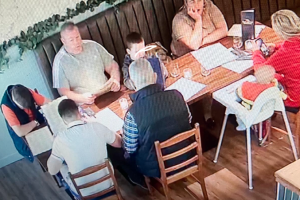NEW protections for private tenants in Wales have been blamed for a drop in the number of homes available to rent.
The Renting Homes Wales Act means people facing eviction through no fault of their own, such as if a landlord wants to take back the property or move new tenants in, now have six rather than two months notice to leave. It also places new responsibilities on landlords to make sure homes are up to standard.
But Simon Rose, who is Torfaen Borough Council’s housing manager, said the new law, tax changes, and higher interest rates have contributed to a reduction in the number of houses available to rent in the Gwent borough.
A possible “tipping point” in the housing market has also seen landlords cashing in their properties, said Mr Rose, who also acknowledged new regulations, tax changes and interest rates have been citied by landlords across the UK for leaving the market.
Figures from licensing body Rent Smart Wales show the number of properties across the country registered with it fell by 301 from January 2021 to January this year, and over the same period the number of registered landlords reduced by 328.
Torfaen also saw a spike of almost 400 per cent in ‘no-fault’ evictions ahead of the law coming into force last December, after the Welsh Government delayed its implementation from March.
Mr Rose said in the 12 months to October 2022 the council dealt with around 110 no-fault evictions: “When we compare it to the year before it was around about 30 so we are talking about an almost 400 per cent increase.”
Feedback from landlords blamed the new law, tax changes and individual circumstances said Mr Rose, who said he expects the number of such notices to be at between 55 to 60 this year.
Torfaen’s Labour cabinet member for housing, Cllr David Daniels, who was appearing before a council scrutiny committee with Mr Rose, said though he supported the principle of the new law, first passed by the Labour government in 2016, he felt it had been introduced at the wrong time.
He said: “Of course people deserve to live in fit and proper homes but it’s a case of broadly right policy at the wrong time as there are so many other factors at play that really undermine the purpose of the policy.”
He added: “I fear it’s been the straw that broke the camel’s back because for landlords it’s just been one thing too many.”
Private rentals account for only around eight per cent of the housing stock in Torfaen, but Cllr Daniels said he feared that would “shrink” by the act deterring “casual renters” in the future as well as having led to some already withdrawing their properties.
He said: “We don’t have the capacity in social housing to lose capacity in the private market.”
The Cwmbran Pontnewydd councillor said councils felt the law should have been further delayed, saying: “It’s a very difficult thing for a Labour person to say, but I hope it comes across as pragmatic rather than anything else.
“I have said to the minister it is not having the outcome it is hoped for. The housing can be as fit and proper as you like but if the housing is not on the market for people to live in it is just theory.”
Mr Rose did say the new law’s longer notice period provides the council with more time to either resolve an issue with a landlord or to find alternative accommodation.
But long waits on the Homeseeker list, which the council manages for housing associations, mean six months isn’t usually sufficient as a family wanting a home in Cwmbran would probably have to wait for between 12 and 15 months “if not longer”.
The council can offer payments to keep tenants in a property beyond the notice period, Mr Rose said: “It seems morally wrong in many ways but it’s a cheaper option for us than providing temporary accommodation and it is also morally right to keep someone in what has been there home for probably five, 10 or 15 years while we find an alternative.”
The council provides support to landlords including free training on the Renting Homes Wales Act.



















